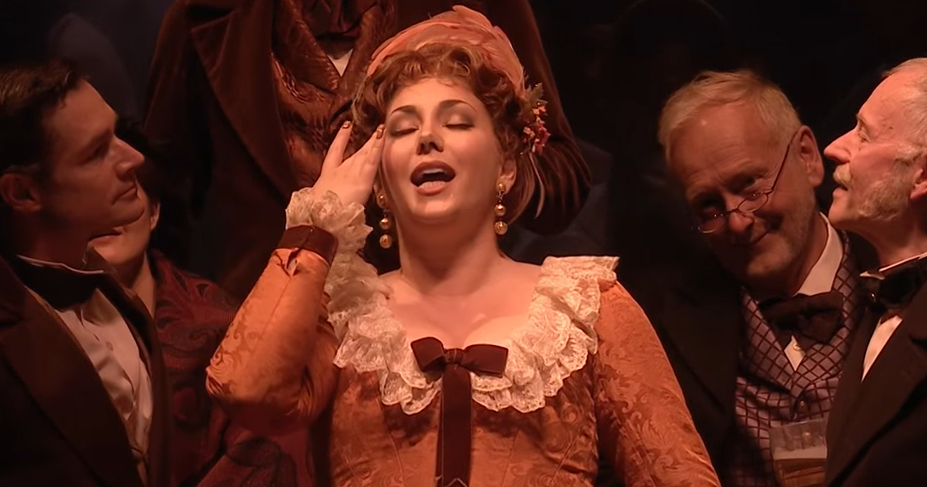Becoming Musetta - Part One
Act Two - Musetta's Entrance
Act Two - Musetta's Entrance
Opera Synopsis
Act Two
La Boheme is one of the most famous operas to have been written. It makes sense: Puccini hit it out of the park on every aspect. The music impassions you and draws you deep into the hearts of the characters. The characters are realistic and funny, as well as brave and virtuous - even in the face of incredible hardship, love still flourishes. As an audience, we also appreciate them for their flaws. Ultimately, La Boheme is about love, hope, loss, and the class divide - with a depth of feeling so profound that it changed opera forever.
When examined, Musetta is a complex character. However, in a few ways, she can also be a simple one.
She enters the cafe in the second act with her usual dramaticisms. Across the restaurant she spots her ex-lover Marchello celebrating with Rodolfo, Mimi, and the rest - but she also notices that even though he had seen her enter, he was not paying her any attention. This display of impudence (I’m sure she would think of it that way) drives her absolutely mad - and she proceeds to have a public freakout entirely at the expense of the elderly patron she dragged in with her, Alcindoro.
Rodolfo explains to Mimi and to us the history of Marcello and Musetta’s relationship and how it came to end. He tells us that they were once madly in love - but once the money ran out, Musetta left him to seek a better life. Mimi comments on how clear it that they both still love each other (desperately, for that matter.) Musetta is prideful and doesn’t want to admit that she misses him - and perhaps feels embarrassed about leaving him in the first place. It’s clear that when she sings her famed waltz “Quando men vo,” and provokes Marcello by saying “you won’t admit to it, but you’re dying inside” - she’s actually describing her own feelings, even if she doesn’t realize it. Marcello had also never kept it a secret that Musetta still continues to haunt him - it’s his pride that holds him back too. I get the impression that Musetta hates having to deal with old men like Alcindoro, all for the sake of the dollar. However, Musetta is a practical woman, and one largely motivated by self-preservation - that’s why her initial decision to leave Marcello makes sense to me. In the end Marcello ultimately gives in to her charms. They embrace in a fit of passion and rejoin the rest of the party… guess who gets stuck with the bill! That’s right, poor sugar daddy.
This aria should not be written off as just another “coquette” romp, and nor should Musetta herself. Her character serves an important role as the foil to Mimi - her relationship with Marcello mirrors that of Mimi and Rodolfo. There are several ways of showing this contrast between herself and her counterpart, as well as different approaches to her personality. Is your Musetta mature, manipulative, and seductive? Perhaps she’s hot-blooded, juvenile, and jealous. How do you plan for her to change? The possibilities for interpretation are endless.
“Quando men vo” six different ways.
In part two of my character analysis, we’ll move on to act three - when the story takes a turn for the tragic.







